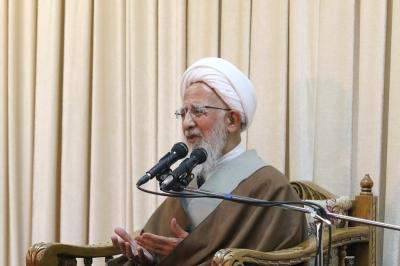
RNA – In a meeting with Mohammad-Hasan Tarighat-Monfared, the chairman of the Health Commission of the Supreme Basij Assembly, at Qom’s Isra International Foundation for Revealed Knowledge, Grand Ayatollah Abdollah Javadi-Amoli said, “Abstaining from overeating or bad eating habits – both of which are the root of many human diseases – are religious etiquettes. Religion has said if you are not hungry, do not eat, and to stop eating before you are completely full. By following these simple things and by increasing knowledge of religion and ethics, people can resolve a lot of health-related issues.”
The revered source of emulation added, “Traditional medicine must really be scrutinized before it can be considered a science, and just because some plant is able to cure some illness, does not make it sufficient. We should know that until something isn’t confirmed 100%, it cannot be considered religious either.”
Ayatollah Javadi-Amoli said, “A science can be religious, if its subject-matter is religious. Therefore, religious medicine has nothing to do with the doctor, patient or the disease, rather it has to do with an in–depth understanding of the subject-matter and its related issues. In other words, medicine is only religious if there is an in-depth understanding of the body and its structure.”
He explained, “If Abu Ali Sina (Avicenna) was alive today, he would have made use of medical procedures available today. However, if we go after the study of different plants and their specific medical qualities, and then we can present our findings in an academic manner by publishing papers proving our arguments, only then can these medicines be considered suitable for our body.”
Ayatollah Javadi-Amoli stressed, “A doctor must know that they are not a businessperson, and that a patient is human – an eternal creation. A patient does not decay by dying, rather it simply leaves the skin they were in. Therefore a doctor must acquire a decent portion of their knowledge from ethics, and should not rely just on labs and experimentation. Furthermore, unless the illness of a patient is not proven for them, they should not prescribe a prescription. If a doctor prescribes a prescription without diagnosing the patient, and prescribes a wrong medicine, they are responsible. If a doctor is unable to identify the problem, they must say, ‘I was not able to diagnose you,’ and then refer the patient to another doctor. This is Islamic medicine.”